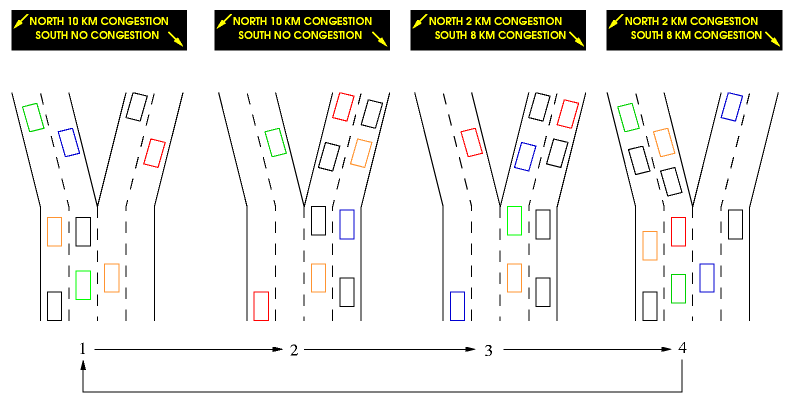
An example of an unstable situation that could arise when drivers react to DRIP messages.
An important topic in this context is the
short or long term reaction
reaction of the drivers.
Consider, e.g., the route information that is given to the drivers
via DRIPs (Dynamic Route Information Panels)
or via radio broadcast. This information
can (and hopefully will) influence the
drivers' route choice. So, these messages can be used to control
traffic flows. The given information usually describes the
current situation or a prediction for the short term
future. However, when drivers react to these messages, the
predictions will be no longer valid, since the actual traffic
situation changes as a consequence to these
reactions. Then the messages will be
adjusted, and the drivers will react again. This is an undesirable
situation and can even become unstable. This is illustrated
in the figure below.

Furthermore, encountering situations that differ
from what has been announced
can frustrate the drivers
and might decrease their confidence in these messages. This is highly
undesirable, because the drivers' confidence is necessary to be able
to control the traffic. Thus, if we want to control the traffic via
route information, he given predictions (and control) should
take both the drivers' reaction and the control objectives into
account.
(Model) predictive control seems to be a good approach to tackle these
problems, because predictions about the future behavior and the
development of traffic flows can be considered.
The students task is to select or develop a model which can describe
the network effects of the most important control measures and the
drivers' reactions, and find an optimal way to operate these control
measures. Optimality in the traffic context
could mean: improved flow and/or speed, decreased
travel times, etc.
If you are interested in selecting this project as your MSc project,
please come along or send an email for more information.